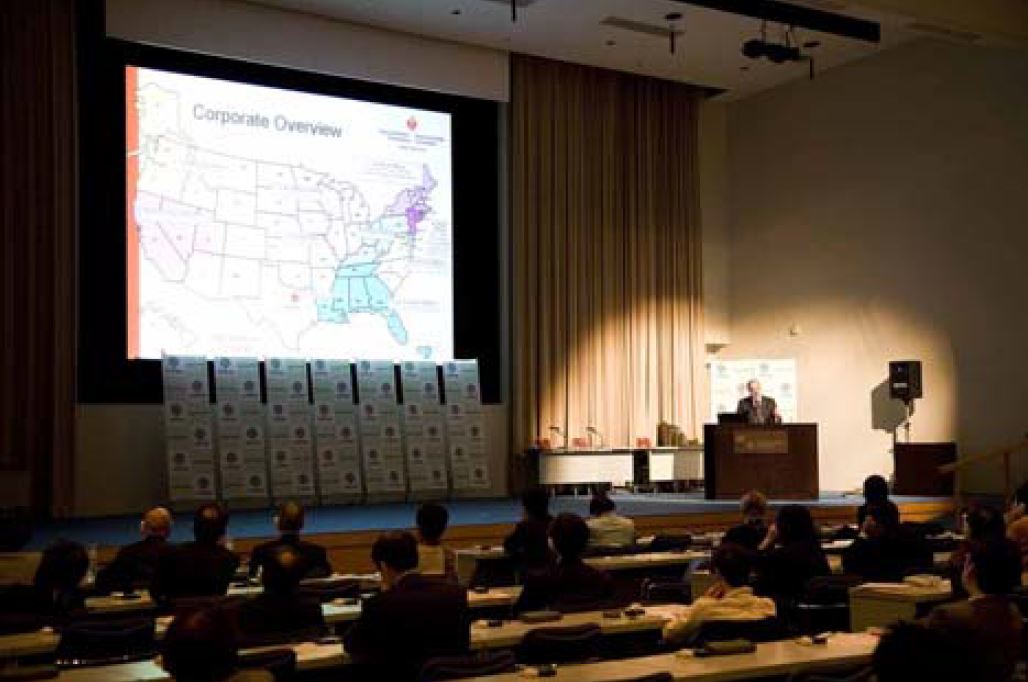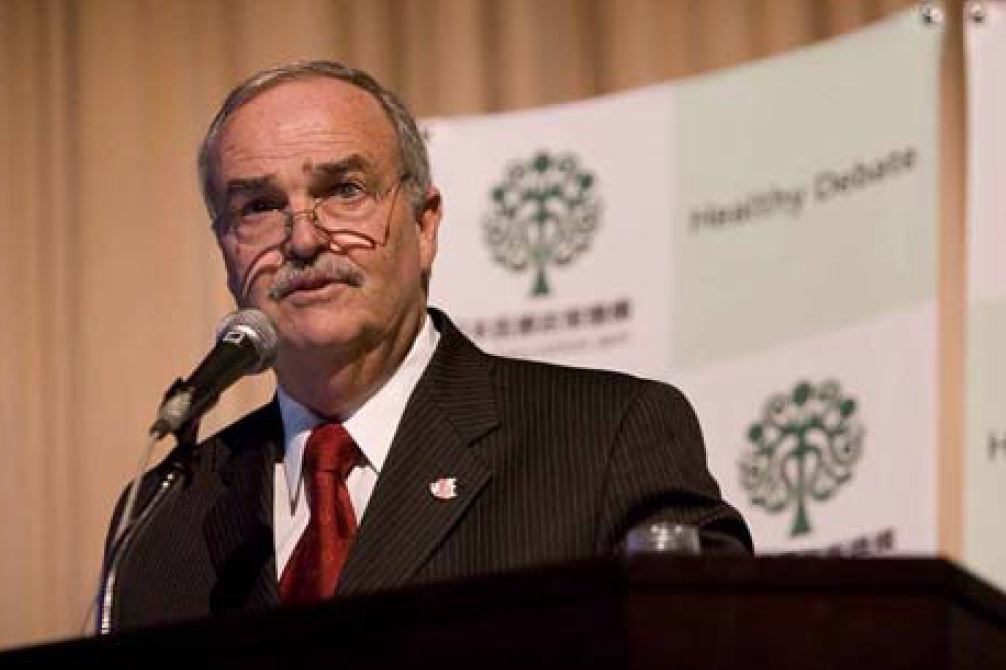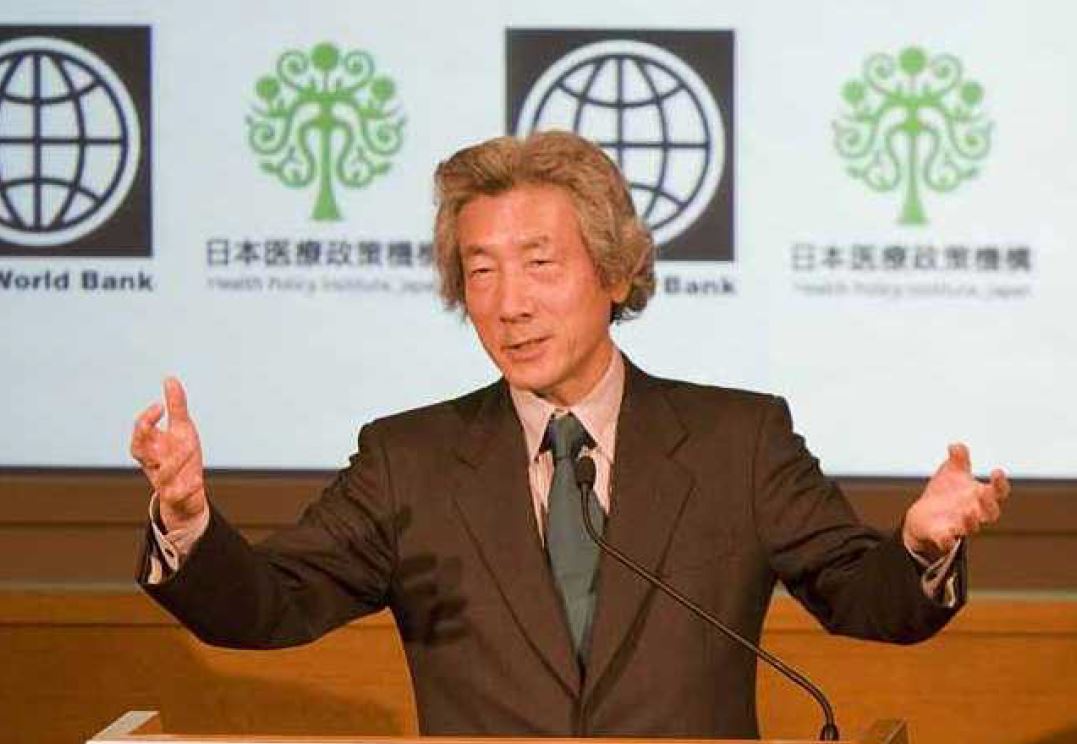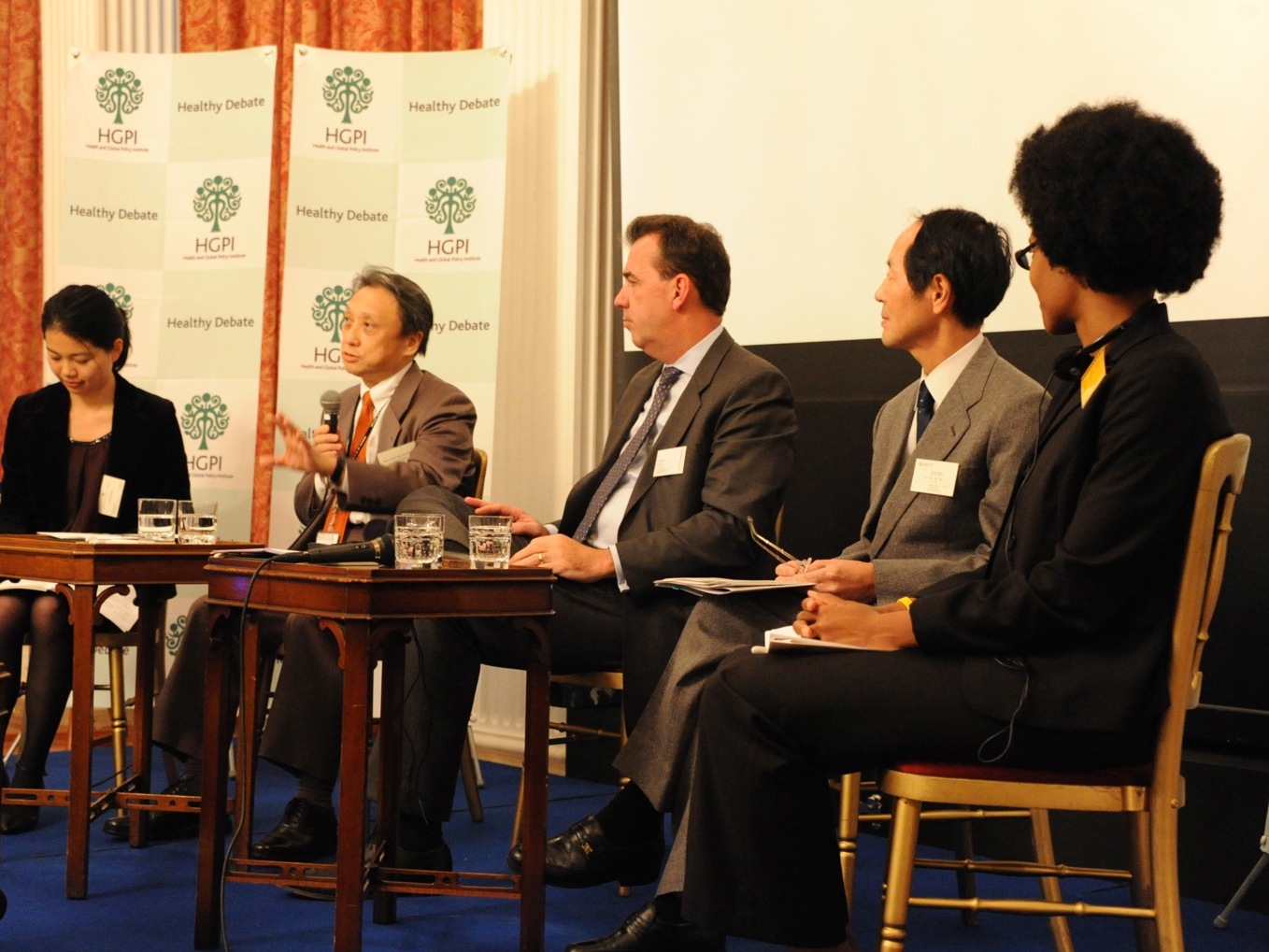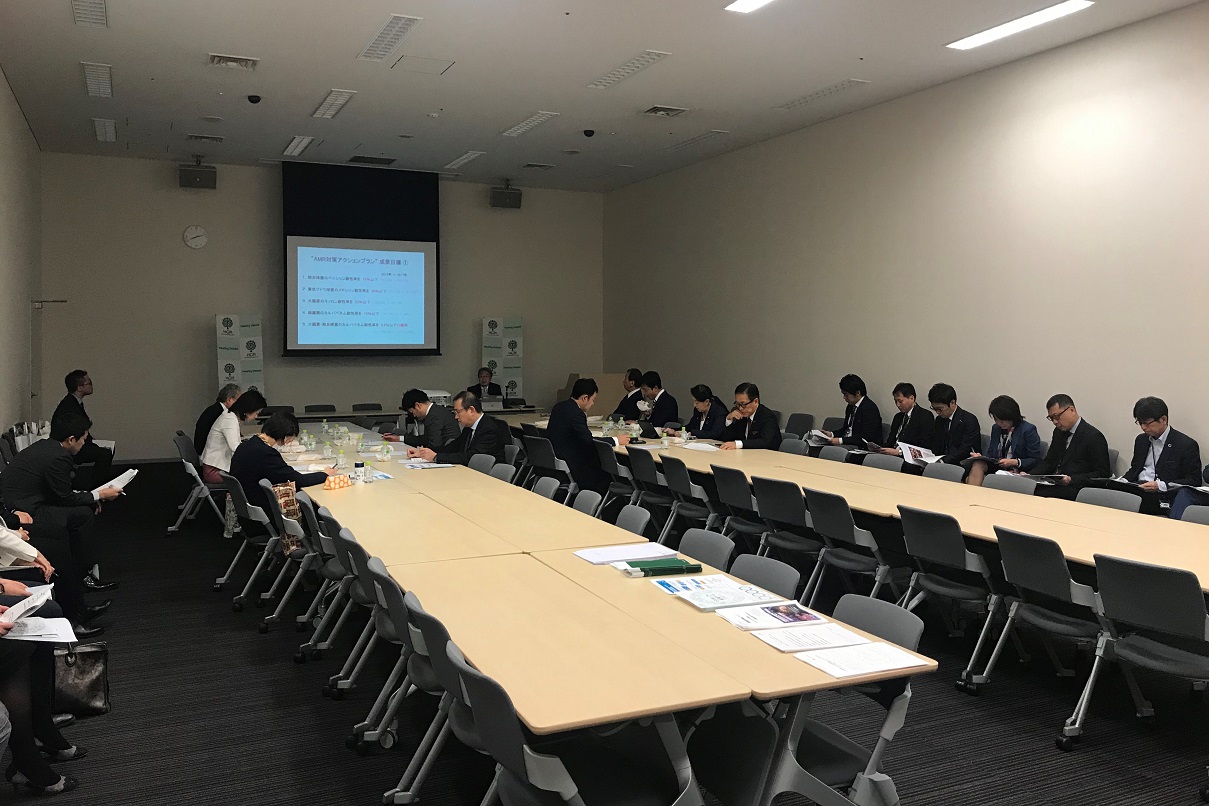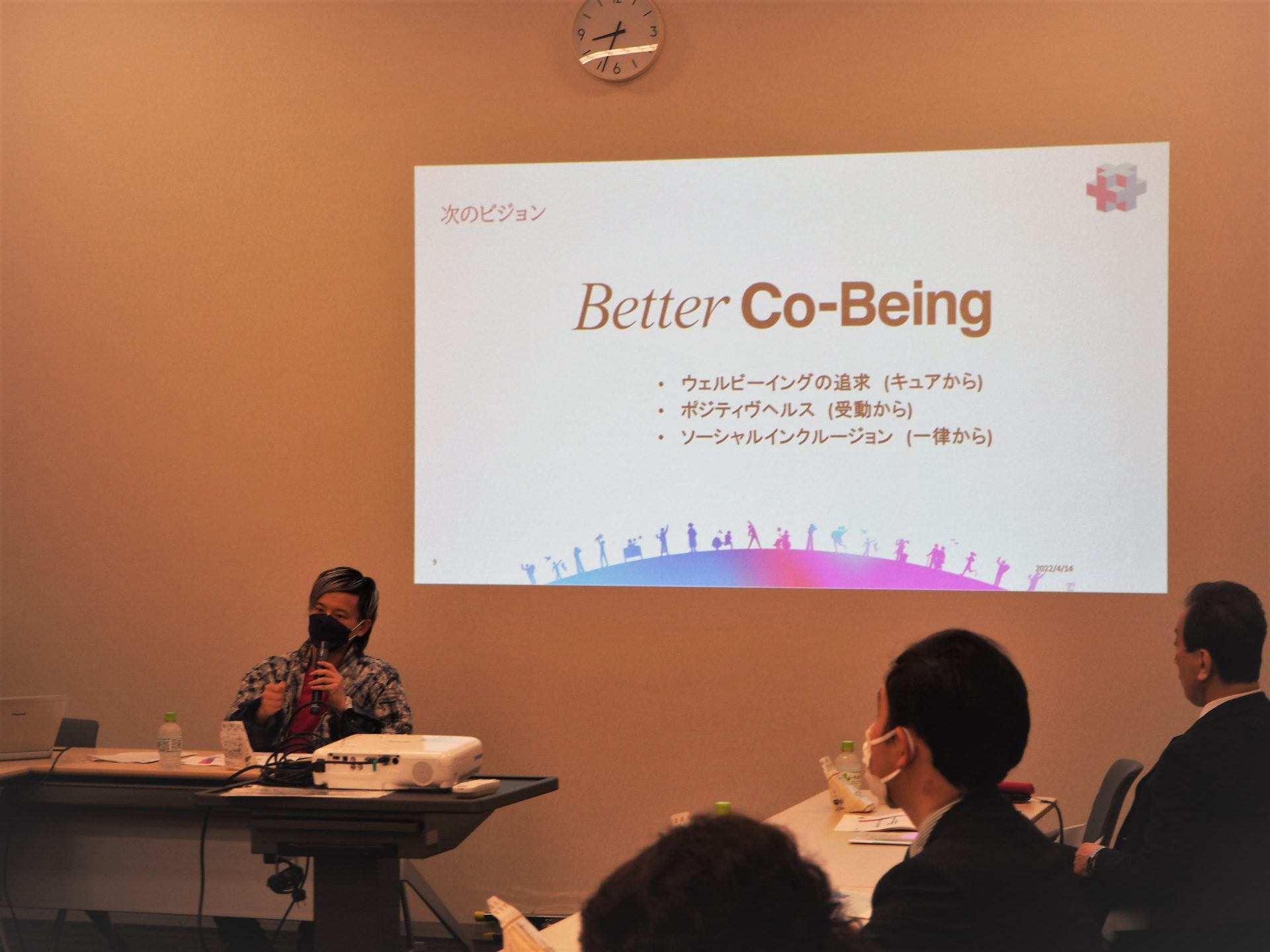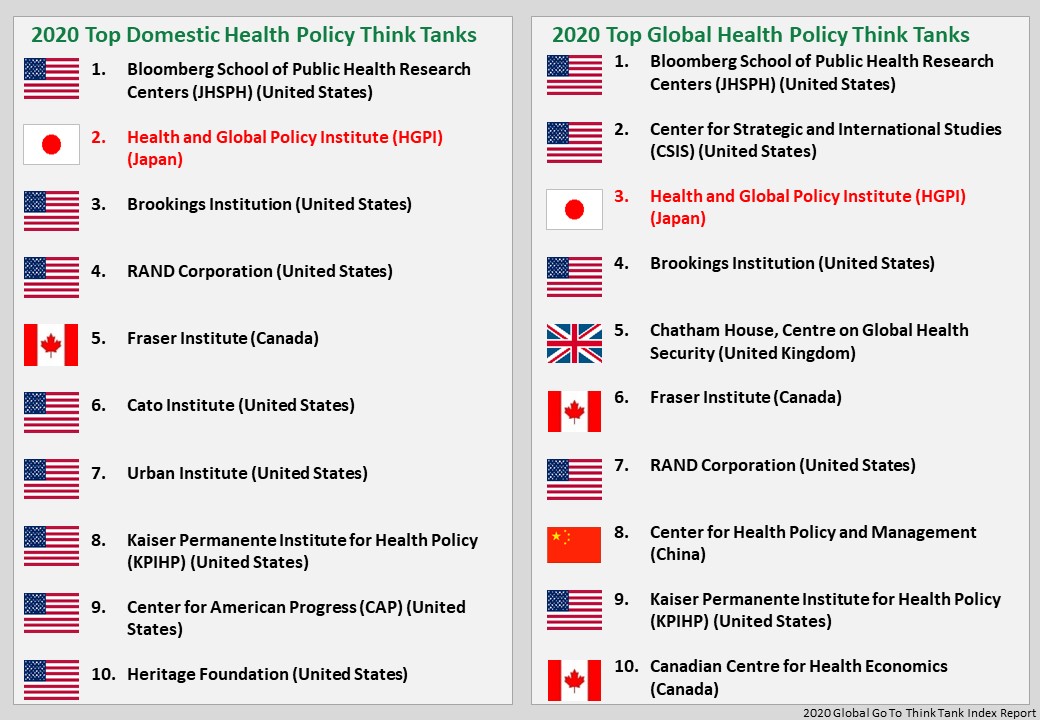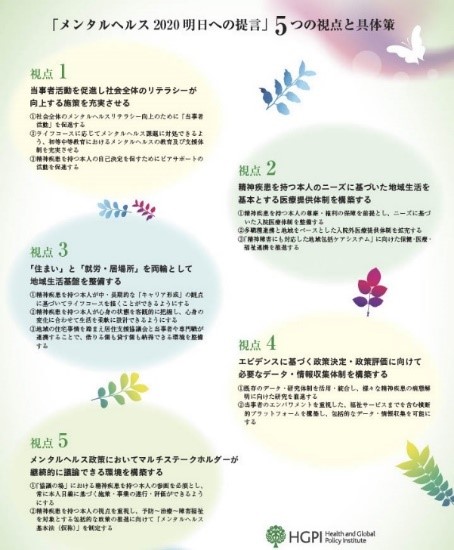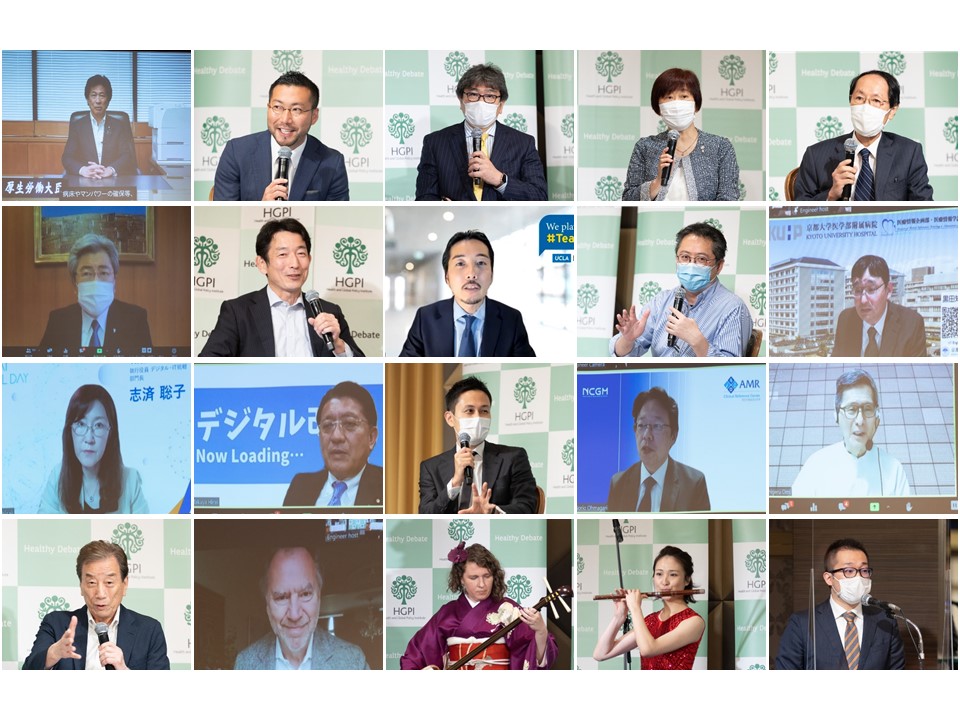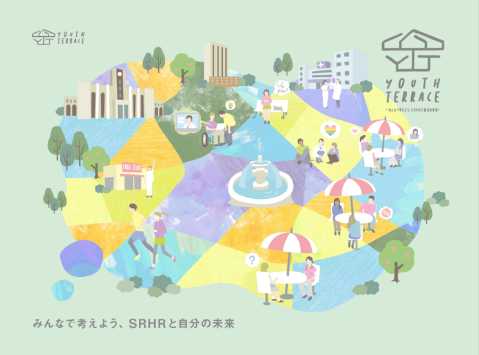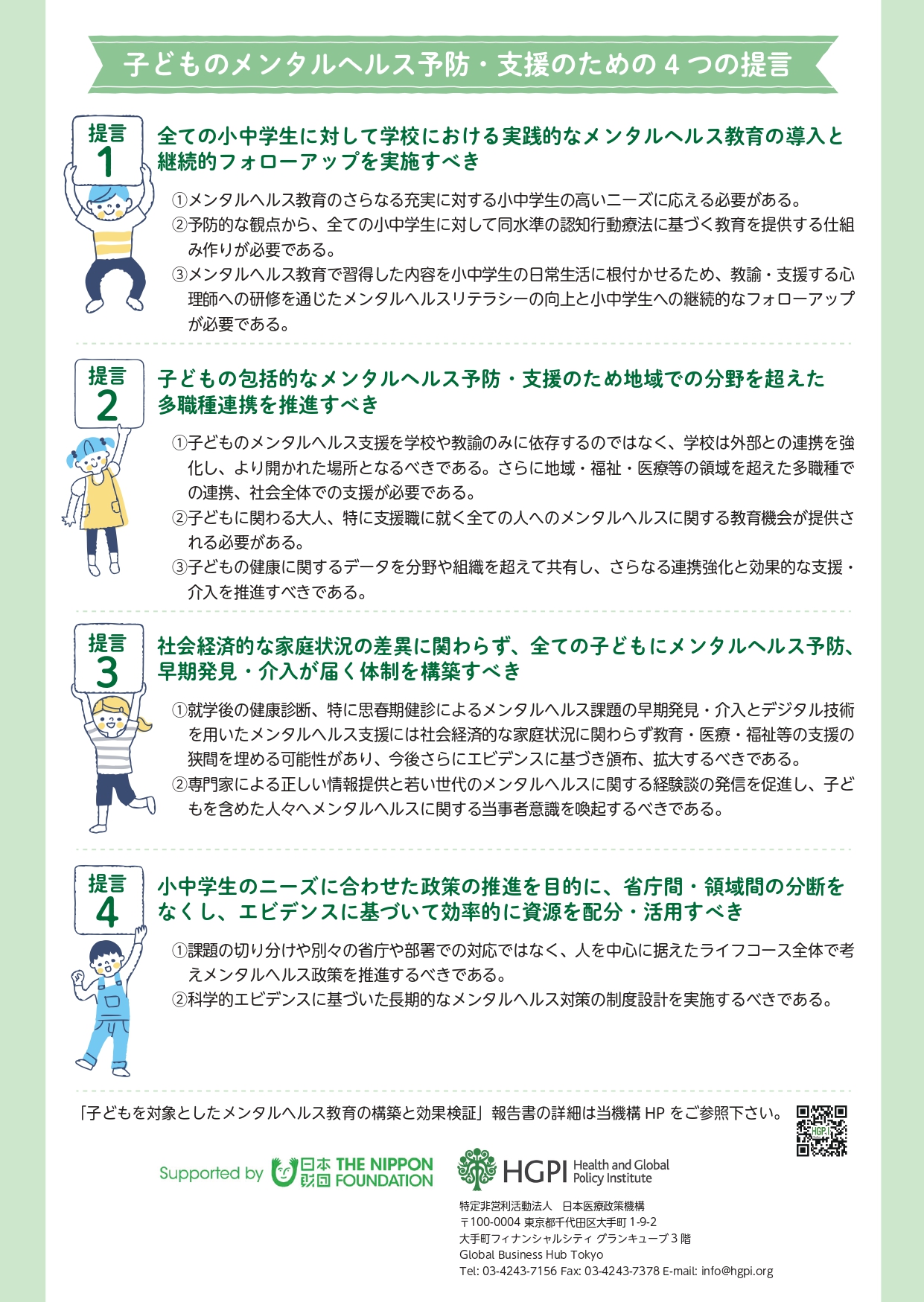Health and Global Policy Institute’s History
| April 2004 | Established as a Specified Non-Profit Corporation, the Tokyo Advanced Healthcare Policy Center |
| March 2005 | Renamed as a Specified Non-Profit Corporation, Health Policy Institute Japan (later renamed in English, becoming Health and Global Policy Institute) |
| March, May 2005 |
“Low Birthrate and Women’s Health” and “Employment of Women and Health Policy” policy recommendations presented 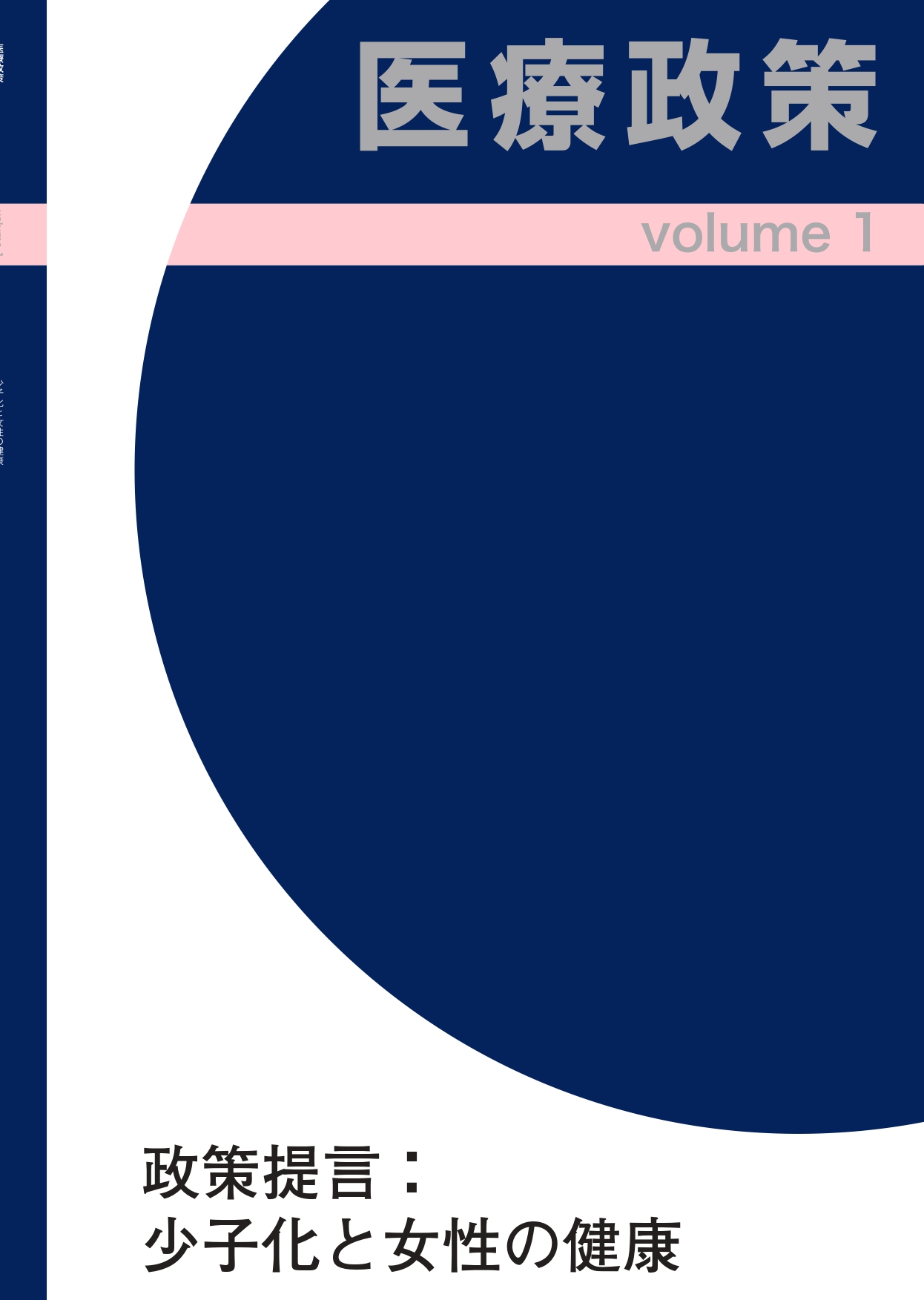 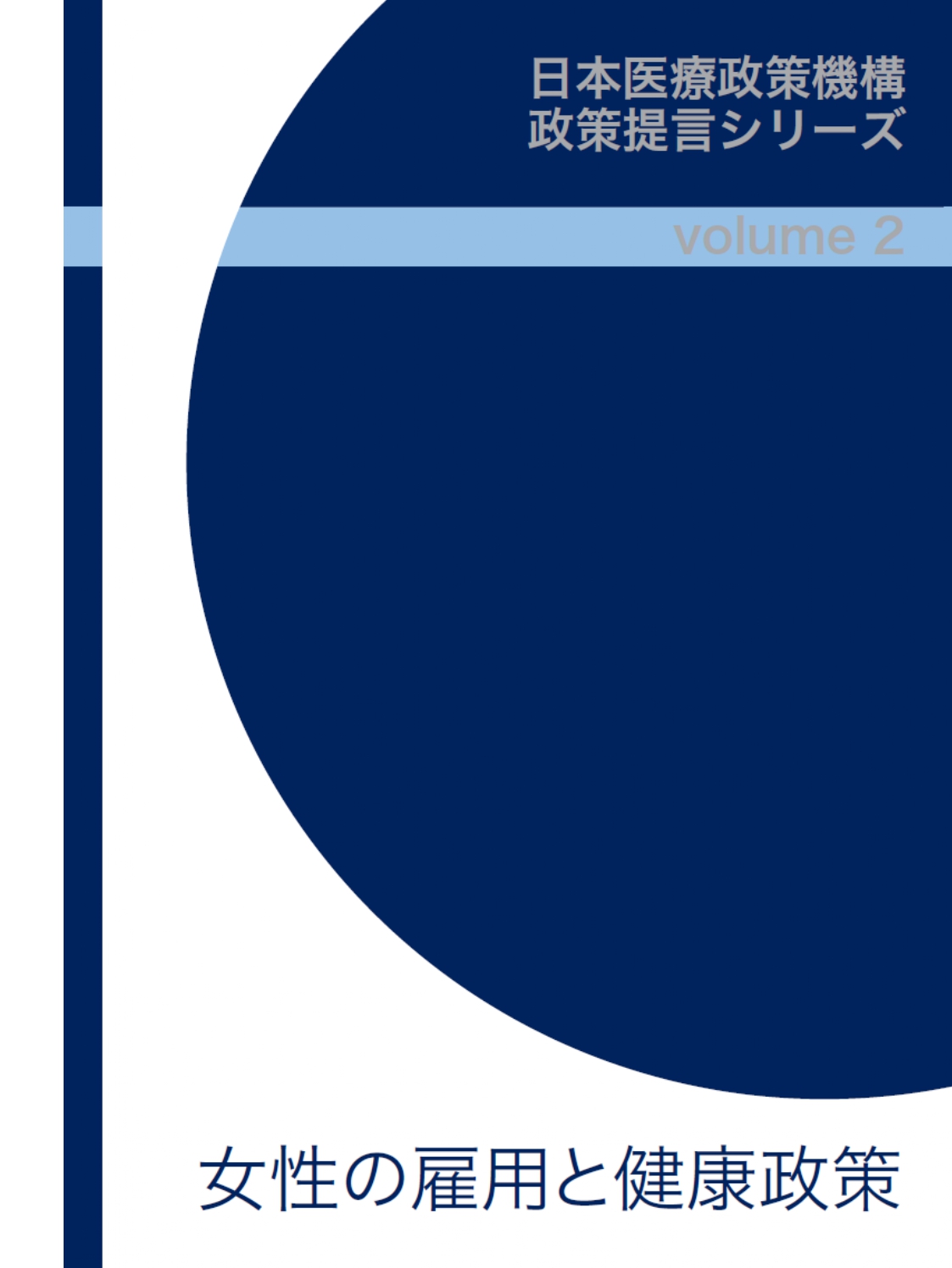 |
| February 2006 |
“Public Survey on Healthcare in Japan” Implemented and “Health Policy Summit” Held 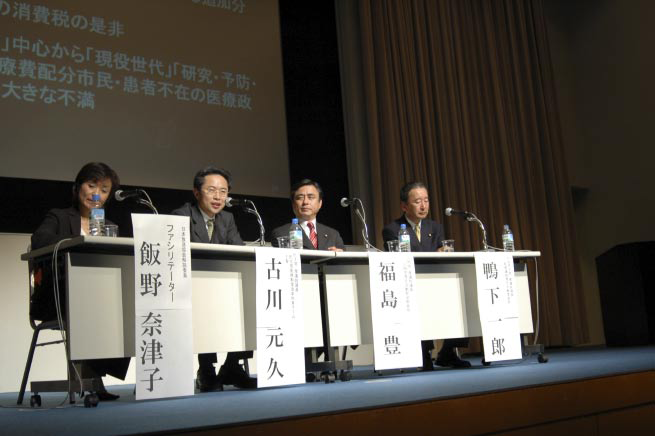 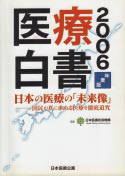 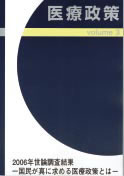 |
| March 2006 | “The Health Policy Needed by Cancer Patients and Their Families” presented HGPI analyzed the findings of the “Cancer Patient Survey (2005),” which targeted all cancer patients and their families in Japan, and gave a presentation at the Second Conference of the Cancer Patients Support Organization. By presenting the voices of cancer patients and their families in a quantitative manner, we helped to encourage the enactment of the Cancer Control Act. |
| December 2006 | “Regenerative Medicine: The Road to Clinical Application” presented From the time of its establishment, HGPI has recognized Regenerative Medicine as a key policy area. |
| April 2007 |
International Patient Organization Symposium; Patient Participation in Cardiovascular Health Policy
|
| February 2008 |
Global Health Summit Held
|
| May 2009 | Cancer Policy Summit Held The inaugural Cancer Policy Summit 2009 brought together national and prefectural legislators, local cancer control officials, and 37 patient-related committee members from the Prefectural Cancer Control Promotion Councils of 24 prefectures for a two-day conference. Best practices from across the country were shared amongst stakeholders, priority issues in cancer control in Japan were discussed, and various policy proposals were put forward. The Summit represented a significant step in the creation of opportunities for patient participation in health policy planning. 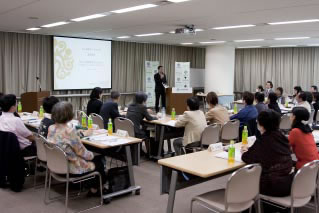 |
| June 2009 | Health Policy Forum Held The Health Policy Forum was established as a council of 35 private sector experts who, in advance of the 2009 general election, compiled the paper, “Health Policy – 3 Key Issues for the Manifesto,” which was submitted to all political parties. The recommendations made included those on securing stable funding, focusing investment in acute care, establishing a self-sustaining system of medical specialists, and increasing transparency in the policymaking process.   |
| February 2010 | Health Policy Summit 2010 HGPI hosted Health Policy Summit, an expert meeting that involves broad stakeholders and has been held annually. As the first major meeting on health policy held after the change of Japan’s governing party, we were joined by many representatives of the media and the event drew a great amount of attention. We also hosted former top health officials from the U.K. and the U.S. for global discussions. |
| January 2011 | Officially accredited as an Authorized Non-Profit Organization |
| January 2011 | Stroke Policy Forum 2011 HGPI joined with the Council to Promote Legislation on Stroke Control to host Stroke Policy Forum 2011, an event for Diet Members and other figures concerned with measures on stroke prevention and control. In our capacity as a non-partisan think tank, we hosted Diet Members from both ruling and opposition parties who are involved in this field to advocate for the enactment of the Basic Act On Stroke and Cardiovascular Disease. |
| March 2011 | Disaster Recovery Support Project launched after the Great East Japan Earthquake In immediate response to the Great East Japan Earthquake, Health and Global Policy Institute established emergency teams in cooperation with an international medical aid organization based in the United States. Since April, 2011 HGPI has provided logistical support for the dispatch of Japanese medical professionals normally resident in the U.S. In May, a memorandum of understanding was signed by Iwate Governor Takuya Tasso and an international medical aid organization for the continued provision of medical support and assistance to the stricken area, with a particular focus on Yamada Town of Iwate Prefecture. |
| November 2011 |
NCD Forum 2011 ~ Chronic Disease Control and the NCD Agenda in Developed Countries
|
| May 2013 | “International Symposium 2013 – Keys to Economic Growth in Africa: Investing in Health” Held Together with the Japan Center for International Exchange (JCIE), and as a side event of TICAD V, HGPI hosted a symposium on health and sustainable growth in Africa. Business leaders from Africa and Japan and representatives from international organizations were invited as speakers, and examples of public-private partnerships were discussed at length, providing new perspectives on the health sector in Africa. |
| August 2014 | Forum “Three and half years after 3.11 – Protecting the health of the victims-” Held After the Great East Japan Earthquake on March 11, HGPI worked together with a U.S. medical support organization, Project HOPE, on healthcare support, including the deployment of health professionals and reconstruction efforts in Yamada-Machi in Iwate Prefecture. This forum enabled multi-stakeholder discussions on the development of a sustainable action plan to resolve issues related to healthcare support in the affected areas. |
| November 2014 | “Taking Action on Dementia: Opportunities for Social Investment – Global Dementia Legacy Event Japan Private Sector Side Meeting” Held Coinciding with the Japanese government-sponsored Global Dementia Legacy Event Japan, HGPI, together with the OECD, hosted a side meeting focused on private sector efforts to address dementia. Representatives from private companies shared their unique and innovative approaches to this issue, including initiatives in urban development, robotic technology, and door-to-door delivery services to watch over vulnerable populations. Participants from around the world gathered to exchange ideas on dementia and other aging issues, generating extensive media interest. 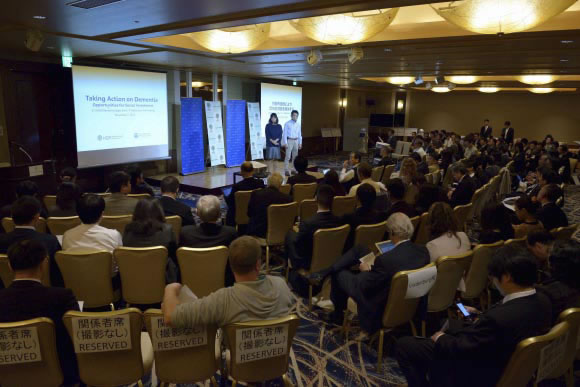 |
| April 2015 | “Health Policy Academy” Program Started HGPI began offering a program entitled “Health Policy 101,” for people who would like to gain basic knowledge and learn the essentials of health policy. The program continues today, and draws participants from a variety of backgrounds such as doctors, nurses, administrative officials, journalists, and business persons.The number of participants who have completed the program now number in the hundreds.  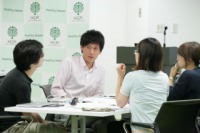 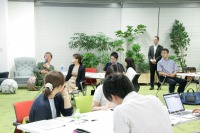 |
| April 2016 | CSIS-HGPI Joint Event US-Japan Expert Meeting on AMR “Japan’s Role in Addressing Global Antimicrobial Resistance (AMR)” Held The Center for Strategic and International Studies (CSIS) and HGPI jointly convened this meeting, amidst the momentum following the Tokyo Meeting of Health Ministers on AMR in Asia. This meeting provided a platform for open, multi-stakeholder discussions on AMR-related policies with the active participation of experts from the private, public and academic sectors. A report was published proposing 14 recommendations that cover the 6 Goals of the National Action Plan on AMR developed by the Japanese Government. The recommendations included different aspects such as countermeasures, partnerships, and research and development (R&D). 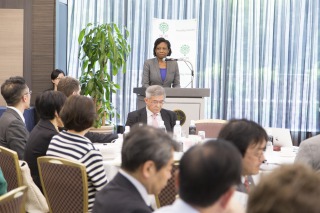 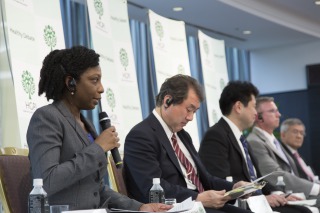 |
| July 2016 | New Office Opened HGPI moved to Otemachi, in order to inhabit a more functional office and use resources more effectively and efficiently. |
| April 2017 | “Rebalancing Health Systems: Innovation and Sustainability” A Joint Global Expert Meeting convened by CSIS and HGPI Held A variety of domestic and foreign experts and stakeholders discussed ways to balance the promotion of medical technology development and the sustainability of equitable and quality healthcare systems. The policy recommendations highlighted the importance of public involvement in the decision-making process, especially when evaluating the value of healthcare technology, including both the costs and public health benefits. 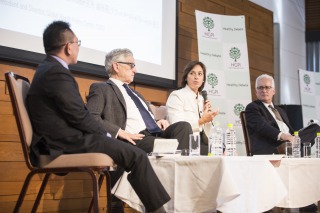 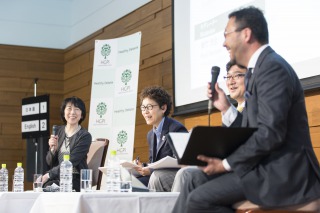 |
| March 2018 | Survey on Health Promotion and Working Women Implemented In 2016 and 2018, HGPI conducted surveys to identify the potential socio-economic impacts of improving women’s health. The results received attention from the media, academic societies, and a Budget Committee in the Diet, contributing to the reinforcement of policies related to women’s health. |
| May 2018 | NCD Global Forum for Civil Society and Related Workshops and Expert Forums Begin A series of four forums entitled the “NCD Global Forum for Civil Society” was kicked off in FY2018. Workshops and expert forums were also held as parts of this series. This forum series brought together people with NCDs and related parties with representatives from government, industry, academia, and civil society from Japan and overseas to hold discussions on the themes of diabetes, cancer, dementia, and stroke, heart disease, and other cardiovascular diseases. 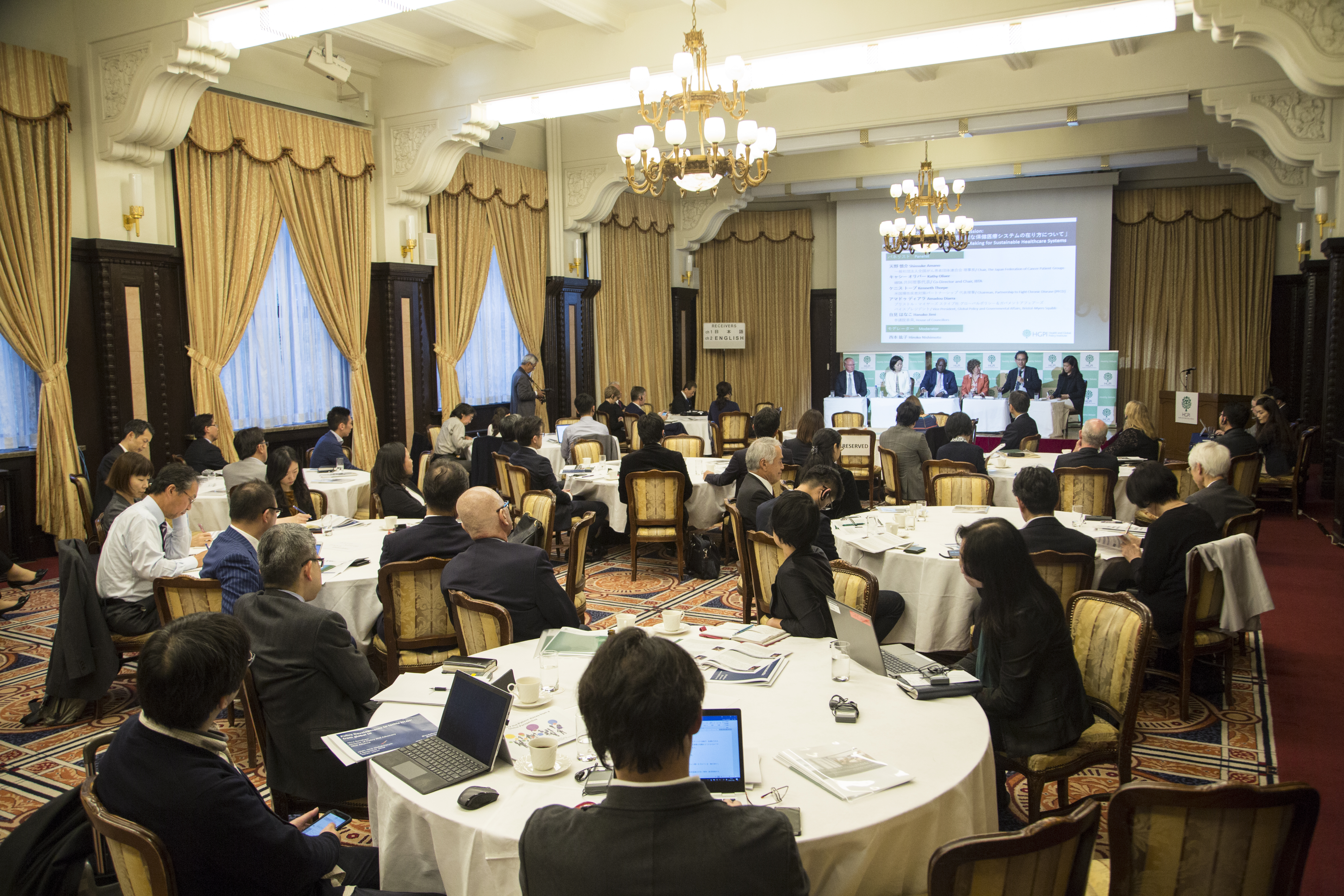 |
| October 2018 | HGPI and Keio University Launch Designing for Dementia, A Platform for Issuing Recommendations about Dementia HGPI, Keio University’s Center for Wellbeing Research, issue+design, and the Dementia Friendship Club launched Designing for Dementia, a platform to accelerate the transition to a dementia-friendly future.  |
| November 2018 | AMR Alliance Japan Established As awareness towards antimicrobial resistance (AMR) grows in Japan and abroad, HGPI has held multiple expert meetings on AMR since 2016. These meetings made it clear that an independent platform would be necessary to discuss AMR among multi-stakeholders and to provide a cooperative system to influence AMR policy. With the cooperation of eight domestic academic societies in the field of infectious diseases, AMR Alliance Japan was established by multi-stakeholders in November 2018 to improve public health by promoting AMR countermeasures. 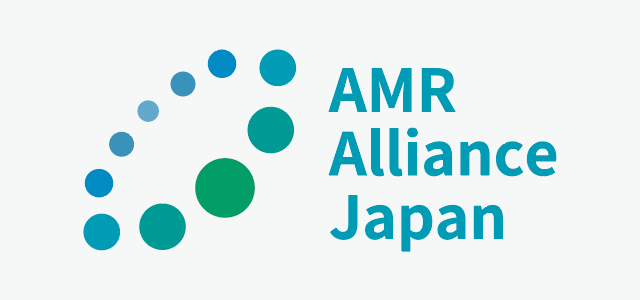 |
| October 2019 | NCD Alliance Japan Website Relaunched In January 2019, HGPI became a full member of the NCD Alliance, which includes approximately 170 countries around the world. To further promote comprehensive and cross-cutting NCD countermeasures, NCD Alliance Japan was relaunched in October 2019. 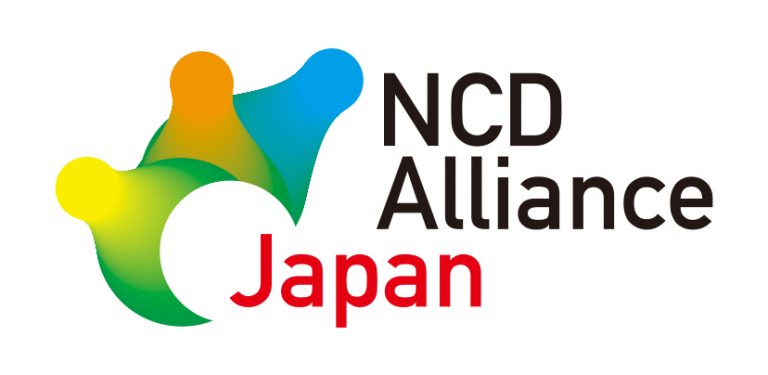 |
| November 2019 |
Non-partisan Diet Member Briefing – 30-minute Health Policy Update
|
| February 2020 |
Ranked Third in the World Among Global Health Policy Think Tanks
|
| July 2020 |
Recommendations “Mental Health 2020 – Proposal for Tomorrow: Five Perspectives on Mental Health Policy”
|
| September 2020 | Proposal on a Global Procurement System for Coronavirus Disease 2019 (COVID-19) Vaccines Starting in 2020, HGPI has been engaged in the immunization and vaccination policy promotion project titled “Immunization and Vaccination Policy Promotion Project -Charting the Way Forward on Immunization Policy: International Trends and the Situation in Japan -.” “Proposal on a Global Procurement System for Coronavirus Disease 2019 (COVID-19) Vaccines” jointly presented by our special advisors for the vaccinations project; Ichiro Kamoshita, Keizo Takemi, Noriko Furuya, and Kiyoshi Kurokawa. |
| March 2021 | The Global Expert Meeting “The Future of the Olympic Games–The Policies Needed to Resume Large-Scale International Events” HGPI took advantage of its position as a neutral and independent global think tank to convene the COVID-19 Policy Agenda Series, a global expert meetings for discussing future COVID-19 measures with experts from abroad. We deepened the discussion on advances that must be made to reach a national consensus on hosting large-scale international events, establishing systems for international collaboration, and policy developments needed to safely resume large-scale international events with the Tokyo Olympic and Paralympic Games in mind. |
| May 2021 |
Health Policy Summit 2021
|
| June 2021 | A Life Course Approach to Immunization and Vaccination Policy – Five Perspectives and Recommended Actions Aiming to create a system in which vaccinations are provided throughout the life course to all people, from children to elderly people, this project presented five perspectives regarding the value created by vaccines in normal times and during emergencies; the best ways of communicating the value of vaccines; the importance of a life course approach to vaccination, which would target people of all ages; and best methods for approaching unvaccinated generations. |
| September 2021 |
Young Professionals’ Roundtable for Public-Private Opinion Exchange on Social Security and Healthcare Policy
|
| October 2021 | The 100th HGPI Seminar HGPI hosted its 100th HGPI Seminar, which are monthly events that feature guest speakers who address a broad variety of themes. |
| November 2021 |
The Official Launch of Youth Terrace, a Reproductive Health Platform
|
| March 2022 | The Public Opinion Survey on Child-Rearing in Modern Japan The HGPI Women’s Health Project conducted a nationwide online survey to identify and propose specific measures that will be important and effective for creating a society in which anyone who wants to conceive is able to do so. The survey results showed there is room for improvement in health literacy for all of society regarding topics like fertility and infertility in men and women as well as women specific health concerns. |
| May 2022 | Recommendation for the Basic Policy on Economic and Fiscal Management and Reform 2022 AMR infections are a threat that is equivalent to Coronavirus Disease 2019 (COVID-19) and discussions based on their tentative status as a priority infectious disease are accelerating. To advance measures for managing AMR-related risks, AMR Alliance Japan recommended the Basic Policy on Economic and Fiscal Management and Reform 2022 include the below. |
| June 2022 |
Four Recommendations for Prevention and Support in Children’s Mental Health – HGPI’s View on Children’s Mental Health Policy
|



